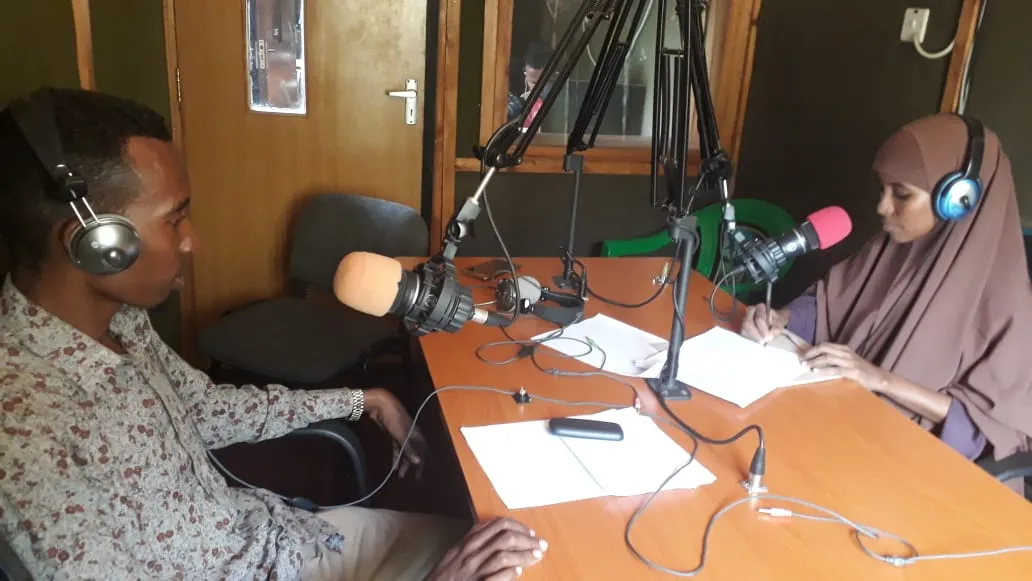Although she misses teaching in a classroom setting, Amina says this is a good alternative.
“They have that thirst of education… The children are listening, they are paying total attention and the lesson goes smoothly. And there is full participation. The class is so interactive and joyful,” Amina says.
Amina, who teaches grades four to eight, has students up to 19 years of age. For various reasons, many refugee children experience disruptions to their education. Now that they are in school, it’s imperative their education not be put on hold due to the coronavirus, says the United Nations High Commissioner for Refugees (UNHCR).
“[Refugees] know how devastating a disruption of education is. They have experienced it through their life as refugees,” says Eujin Byun, a spokesperson for UNHCR in Kenya. “They know education is key to having a better future, especially girl students.”
She says disruptions in education due to COVID-19 can “delay their dream,” of entering a profession and breaking the cycle of poverty.
Amina recognizes that the children have short attention spans which can make it challenging to learn through the radio, but she encourages them to take their studies seriously at this time.
“It’s only the school that is closed — not studying and revision, and not your books,” she tells them on-air.


